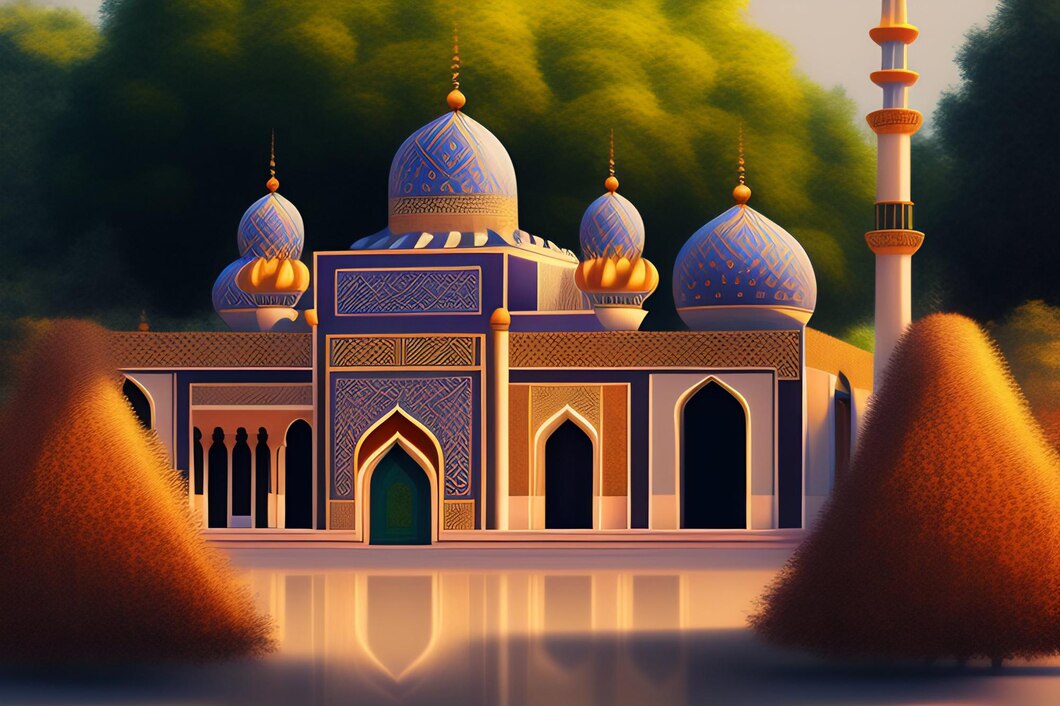Introduction
Mosquee Al Nasr Koekelberg, located in the heart of Brussels, Belgium, stands as a symbol of Islamic heritage and architectural splendor. This mosque, a vital part of the local community, represents not only a place of worship but also a center for cultural exchange and education. In this comprehensive article, we delve into the history, architecture, community impact, and cultural significance of Mosquee Al Nasr Koekelberg.
History of Mosquee Al Nasr Koekelberg
Founding and Early Years
Mosquee Al Nasr Koekelberg was established in the early 1980s to cater to the growing Muslim population in Brussels. The founders envisioned a place that would serve not only as a mosque but also as a community center where people could come together to practice their faith and engage in cultural activities.
Development and Expansion
Over the years, Mosquee Al Nasr Koekelberg has undergone several phases of development and expansion. The initial structure was modest, but as the community grew, so did the mosque. Significant renovations and expansions were undertaken in the 1990s and early 2000s to accommodate the increasing number of worshippers and to enhance the facilities offered.
Architectural Design
Exterior Features
The exterior of Mosquee Al Nasr Koekelberg is a blend of traditional Islamic architecture and modern design elements. The mosque features a large dome, minarets, and intricate geometric patterns that are characteristic of Islamic art. The use of white and green colors on the facade symbolizes peace and prosperity.
Interior Features
The interior of the mosque is equally impressive, with a spacious prayer hall that can accommodate hundreds of worshippers. The hall is adorned with beautiful Arabic calligraphy, chandeliers, and a mihrab that indicates the direction of Mecca. The design emphasizes tranquility and devotion, providing a serene environment for prayer and reflection.
Cultural Significance
Role in the Community
Mosquee Al Nasr Koekelberg plays a crucial role in the local Muslim community. It is not only a place for daily prayers and Friday congregations but also a hub for various social and cultural activities. The mosque hosts events that promote interfaith dialogue, understanding, and cooperation among different religious and cultural groups in Brussels.
Educational Programs
Education is a key focus of Mosquee Al Nasr Koekelberg. The mosque offers a range of educational programs, including Quranic classes for children, Arabic language courses, and lectures on Islamic theology and jurisprudence. These programs aim to enhance the religious knowledge and cultural awareness of the community members.
Community Services
Social Services
Mosquee Al Nasr Koekelberg provides numerous social services to support the local community. These services include counseling, marriage guidance, and financial assistance for those in need. The mosque also runs a food bank that distributes essentials to underprivileged families.
Outreach Programs
Such initiatives foster mutual respect and understanding.
Events and Celebrations
Religious Events
Mosquee Al Nasr Koekelberg hosts various religious events throughout the year, including Ramadan iftars, Eid prayers, and special lectures during Islamic holidays.
Community Gatherings
In addition to religious events, the mosque also organizes community gatherings that celebrate cultural diversity. These gatherings include cultural festivals, art exhibitions, and charity events that bring together people from different backgrounds to celebrate unity and shared values.
Mosquee Al Nasr Koekelberg in the Media
Media Coverage
Visiting the Mosque
Visitor Information
Mosquee Al Nasr Koekelberg welcomes visitors from all backgrounds. The mosque is open to the public during specific hours, and guided tours are available for those interested in learning more about Islamic culture and the mosque’s architecture.
Guidelines and Etiquette
Visitors should also be respectful of the worshippers and maintain a quiet and reverent demeanor.
Challenges and Future Prospects
Current Challenges
Like many religious institutions, Mosquee Al Nasr Koekelberg faces various challenges, including funding, maintenance, and addressing misconceptions about Islam. The mosque is continuously working to overcome these challenges through community support and engagement.
Future Plans
Looking ahead, Mosquee Al Nasr Koekelberg plans to expand its facilities further and enhance its educational and social programs. The mosque aims to continue serving as a beacon of faith, culture, and community for future generations.
Conclusion
Mosquee Al Nasr Koekelberg is more than just a place of worship; it is a cornerstone of the Muslim community in Brussels. Its rich history, stunning architecture, and extensive community services make it a vital institution that promotes cultural understanding and social cohesion. As it continues to grow and evolve, the mosque remains committed to its mission of fostering unity and spiritual growth.
Frequently Asked Questions
What is the history of Mosquee Al Nasr Koekelberg?
- The mosque features a blend of traditional Islamic architecture and modern design elements, including a large dome, minarets, and intricate geometric patterns.
What services does Mosquee Al Nasr Koekelberg offer to the community?
- The mosque offers social services such as counseling, financial assistance, and a food bank, as well as educational programs including Quranic classes and Arabic language courses.
Are non-Muslims allowed to visit Mosquee Al Nasr Koekelberg?
- Yes, the mosque welcomes visitors from all backgrounds and offers guided tours to educate them about Islamic culture and the mosque’s architecture.
What types of events are held at Mosquee Al Nasr Koekelberg?
- The mosque hosts various religious events like Ramadan iftars and Eid prayers, as well as community gatherings such as cultural festivals and art exhibitions.
What are the future plans for Mosquee Al Nasr Koekelberg?
- The mosque plans to expand its facilities and enhance its educational and social programs to better serve the community and promote cultural understanding

